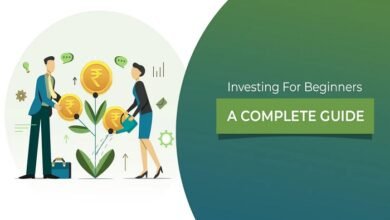Inkasso Oversikt: How to Manage Debt Collection Cases

Most people who take out loans do so with the intention of paying them back. However, situations might arise that lead to a payment default. When this happens, the lender, after 30 days, will hand over the debt collection to a third-party agency. During this period, the agency will do all it can within the legal confines to get the money.
If you are in this situation, we understand how tiresome and problematic it can be. These agencies are known for their persistence in contacting defaulters via calls, text messages, and even emails. Therefore, to save you from this embarrassment, we’ve put together this article just for you.
This post will guide you on how to manage your debt collection cases. We’ll reveal how you can get a perfect overview of these cases. We’ll also discuss some strategies that will help you get rid of these cases and become debt-free. If you’re ready to learn all these, then let’s dive in.
Why Debt Collection Cases Occur
There are two main reasons why individuals experience this issue. The first is the inability to pay back the loan. The second reason is omissions on the part of the borrower. In this section, we’ll examine these reasons.
Inability to Pay Back
Once you default on your loan payment after 30 days, it is automatically transferred to a collection agency. The reason most people default is a lack of funds. In some cases, this might be due to financial mismanagement. In other cases, unexpected situations, such as the loss of a job, might be responsible for this challenge.
Getting an overview of all your collection cases can help you plan your finances to enable you to pay them back. Proper planning might lead to savings and cutting back on certain expenses. You can then use the money to repay the loan. We’ll talk about this later in the article.
Omissions and Oversights
Sometimes, the debt of individuals is moved to these agencies not because they don’t have the money but because they failed to pay when due. Usually, you get charged extra fees when a third-party agency picks up the case. As such, you might end up paying much more for your carelessness and oversight.
To prevent the issue from escalating, you need to pay the loan before or on the due date. Don’t act nonchalant about the bills and leave them unpaid. Ensure that you pay the bill as soon as it comes, whether via physical bills or online alerts.

Find Out the Active Debt Collection Cases You Have
To properly manage the collection problem at hand, you need to accurately determine the number and types of debts you owe. The best way to figure this out is to check the national debt register. In this register, you’ll find all the consumer debts in the country listed there.
To find your debts, all you need to do is log into the register using your BankID. Individuals don’t have to pay for this service, as it is free. On the other hand, if you want to check the debt of an organization, there’s a fee attached to it.
Another option you can use is to run a credit check. There are different applications and platforms that you can use to do this. When the check is complete, it will provide comments that will tell you if you have an active debt situation you need to address.
Budgeting
The next step after finding the cases against you and the amount you owe is budgeting. This will help you manage your finances effectively. So, what do you do?
The first thing is to list out all your monthly income. Do not exclude any income, no matter how small you might think it is. You need to work with your monthly income because you’ll be making repayments monthly.
The next set of items you need to list are your expenses. Apart from your regular expenses, which include food, rent, insurance, electricity, car, etc., you need to include all your debts. This includes those that have not yet been moved to the collection stage as well as those that have been moved to collection.
If you’re finding it difficult to identify and list your expenses, you can take a breather to think. Think about the things you usually spend money on each month. If you still can’t identify all your expenses, you can try looking at your online payment records. For individuals who make payments directly from their bank and bank-related accounts, it should be easy to see where their money has gone in the previous months.
Your budget should be as realistic as possible. Don’t try to get an ideal condition, as that might further complicate things. As you prepare the budget, think about expenses that you can do without and mark them. However, still leave all the expenses in the budget to ensure you get a complete overview.

Use a Spreadsheet Program
Although using ink and paper is good, using a spreadsheet program is better. A popular example is Microsoft Excel. You can also use Google Sheets via your Google account.
These programs have more advantages over ink and paper. First of all, you can create several budgets and variations without much stress. Furthermore, making changes and corrections is simple and neat. You don’t have to start crossing out previous figures.
Another advantage is the programs’ ability to automatically calculate items. They are faster than manual writing and recording. A simple online search would reveal different tutorials you can take to learn how to use these tools if you are a novice.
Managing your Debt Collection Cases
With an overview of the situation, it’s time to manage it and find a way to repay the debt. From the budget created in the previous section, it should be clear what your monthly income and expenditures are. As we said earlier, one of the reasons debt collection cases arise is the inability of the borrower to pay it back.
So, your inability to pay back might be due to two possibilities. The first possibility is that you are not earning enough. The second possibility is that your current income cannot meet your expenses.
Increase Your Income
Depending on the possibility responsible, you have two options. The first option is to increase your income. You can get an additional job or two until you can pay back the loan. If that won’t work for you, then you need to figure out how to increase your monthly income.
Reduce Your Expenses
The second option is to reduce your expenses. Check your budget and mark those things you can live without. For instance, you can reduce how much you spend on food. Instead of going to luxury restaurants, you can patronize cheap dinners.
You might have to forego certain subscriptions for the time being. You can search online for other cheap entertainment that won’t cost you much. These sacrifices need to be made if you are serious about getting out of debt.
To make this work, you need to have clear goals. You also need to determine how long this period of living will last. When you do this, it becomes more of a challenge that you need to overcome. Furthermore, as you see the progress, you’ll be motivated to continue.
So, with this plan, you’ll be able to pay off the debt. Not only that, you’ll learn how to avoid some unnecessary expenses going forward. The overall results will be better management of your finances.
Refinancing
If you find it difficult to increase your income or reduce expenses, you can consider refinancing. You can visit besterefinansiering.no/inkasso-oversikt to find out more about this option in detail. With refinancing, you can get lower interest rates as well as a longer repayment period. All you need to do is get a new loan with better terms and rates, and then pay off the old collection cases with the new loan.
Why You Need to Clear Your Debt Collection Cases
Yes, we know that it can be embarrassing to receive constant calls and reminders from the collection agency. However, that is not the only reason why you need to pay back the loan. Clearing these loans prevents you from having to pay the additional fees that keep accruing when the due date is past.
In addition, active cases can reduce your credit score. This can prevent you from securing other loans from other lenders. Even if you get offers, the interest rates will always be very high because of your active cases.
It might also affect your future credit check. Lenders and even providers of services such as electricity and mobile subscriptions carry out credit checks on customers. With an active case, it might lead to receiving unfavorable terms as the lenders and providers do not consider you creditworthy.
Conclusion
Debt collection cases affect much more than our reputation and dignity. Therefore, it’s crucial that one manages them and gets rid of them as soon as possible. In the article above, we’ve provided a detailed guide on how to manage and get rid of debt collection cases.





